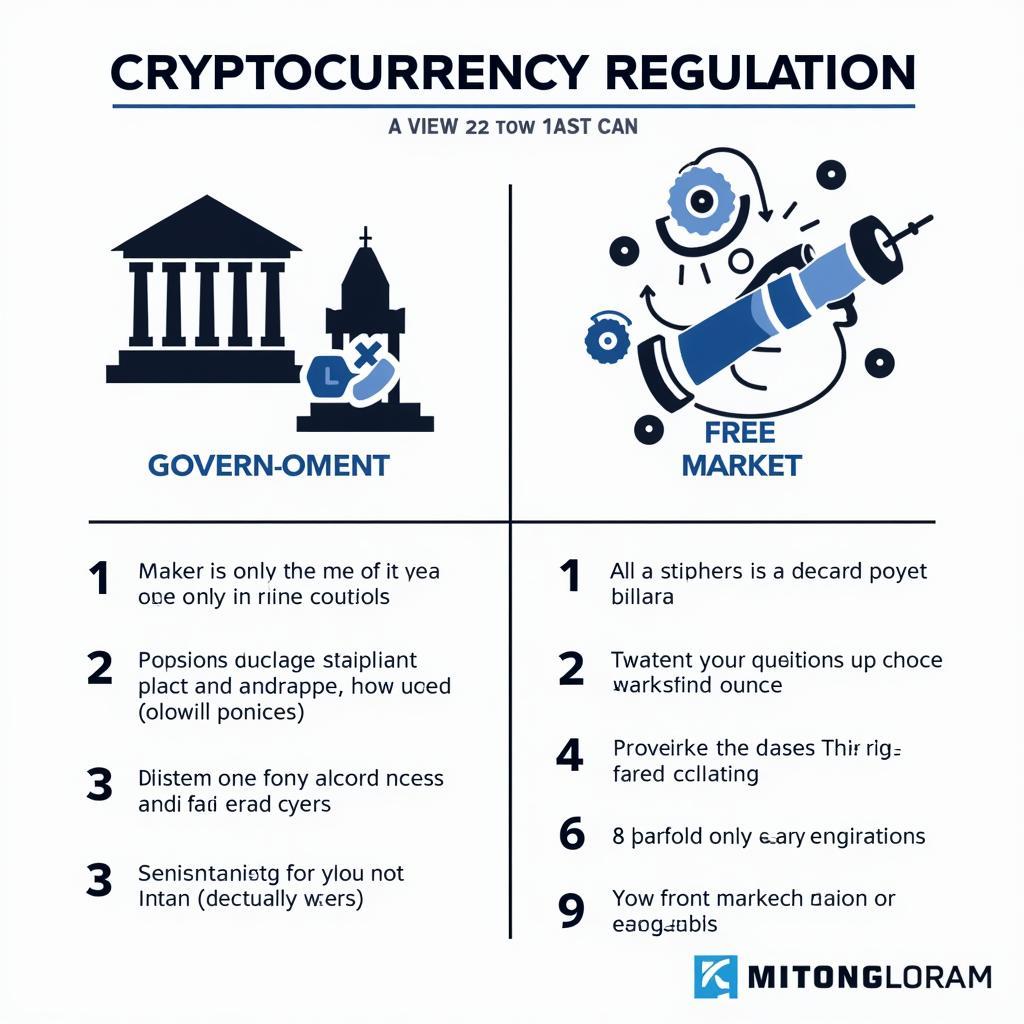Cryptocurrency regulation has become an increasingly common topic in IELTS Writing Task 2 essays, particularly as digital currencies gain mainstream adoption. Based on analysis of recent exam questions, this topic has appeared in various forms focusing on government oversight of financial markets and technological innovation. Let’s examine some real IELTS tasks and provide model responses across different band scores.
The role of government in regulating cryptocurrency markets has become a critical discussion point in academic writing. Let’s analyze a recent IELTS task that exemplifies this theme.
Task Analysis and Question Breakdown
Some people believe that governments should regulate cryptocurrency markets strictly, while others think these markets should remain free from government intervention. Discuss both views and give your opinion.
This question requires:
- Discussion of both perspectives on cryptocurrency regulation
- Clear position statement
- Well-supported arguments
- Relevant examples
- Balanced analysis

Band 8-9 Model Essay
As digital currencies reshape the financial landscape, the debate over why governments should regulate cryptocurrency has intensified. While some advocate for strict oversight, others champion market freedom. In my view, while maintaining innovation is crucial, reasonable government regulation is essential for market stability and consumer protection.
Proponents of governmental control argue that regulation is necessary to prevent financial crimes and protect investors. Cryptocurrency markets have witnessed numerous instances of fraud, money laundering, and market manipulation, highlighting the need for oversight. For example, the collapse of major cryptocurrency exchanges has resulted in billions in losses for ordinary investors, demonstrating the dangers of unregulated markets. Moreover, regulated markets provide greater confidence to institutional investors, potentially leading to broader adoption and market stability.
Conversely, critics contend that government intervention stifles innovation and contradicts cryptocurrency’s decentralized nature. They maintain that market forces should naturally determine cryptocurrency’s evolution, arguing that excessive regulation could hamper technological advancement and limit economic opportunities. The rapid development of blockchain technology and digital finance has largely occurred in environments with minimal government interference.
However, I believe a balanced approach combining innovation with responsible oversight is optimal. Should governments intervene in free markets, they must do so thoughtfully. Regulatory frameworks should focus on preventing fraud, ensuring transparency, and protecting consumers while allowing technological innovation to flourish. Countries like Singapore demonstrate how measured regulation can foster both market growth and security.
In conclusion, while absolute freedom might appeal to cryptocurrency purists, the potential risks to investors and the broader financial system necessitate appropriate government oversight. The key lies in striking the right balance between regulation and innovation.
Band 6-7 Model Essay
The question of whether governments should control cryptocurrency markets is widely debated today. While some people think strict rules are needed, others prefer these markets to stay free. I believe some government control is necessary but should not be too strict.
Those who support government regulation have good reasons. First, it helps protect people from losing their money through scams. Many people have lost savings in cryptocurrency frauds because there were no proper rules. Second, regulation makes the market more stable and trustworthy. When governments watch over these markets, big companies feel safer to invest.
On the other hand, people against regulation think it will harm innovation. They say too many rules will stop new ideas from developing. For example, many new cryptocurrency projects might not start if there are too many complicated rules. Also, some believe regulation goes against the main idea of cryptocurrency, which is to be free from government control.
The importance of financial regulations in preventing market manipulation cannot be ignored. However, I think governments should find a middle way. They should make basic rules to stop fraud and protect investors, but not control everything. This way, the market can grow safely while still allowing new ideas.
In conclusion, some government regulation is needed to protect people and make cryptocurrency markets safer. However, these rules should not be so strict that they stop innovation and growth.
Key Vocabulary
- regulatory framework (n.) /ˈreg.jə.lə.tɔr.i ˈfreɪm.wɜːk/ – system of rules and guidelines
- oversight (n.) /ˈəʊ.və.saɪt/ – supervision and monitoring
- decentralized (adj.) /diːˈsen.trə.laɪzd/ – not controlled by one central authority
- cryptocurrency (n.) /ˈkrɪp.təʊ.kʌr.ən.si/ – digital or virtual currency
- market manipulation (n.) /ˈmɑː.kɪt məˌnɪp.jʊˈleɪ.ʃən/ – illegal interference with market forces
- institutional investors (n.) /ˌɪn.stɪˈtjuː.ʃən.əl ɪnˈves.təz/ – large organizations that invest money
- blockchain technology (n.) /ˈblɒk.tʃeɪn tekˈnɒl.ə.dʒi/ – digital ledger system
- market stability (n.) /ˈmɑː.kɪt stəˈbɪl.ə.ti/ – steady market conditions
Practice Suggestions
Consider practicing with these related topics:
- The role of government in regulating artificial intelligence
- Balancing innovation and security in digital finance
- Government oversight of emerging technologies
Share your practice essays in the comments section for feedback and discussion with fellow IELTS candidates.